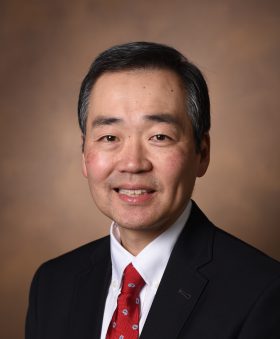Increased genetic sequencing of tumors presents both opportunities and challenges for oncologists who do not specialize in molecular genetics. Molecular tumor boards, similar to the specialty tumor boards used in other areas of cancer, are a promising new strategy to pool the insights of experts in genetics and precision therapies to help recommend treatment.
“Often in oncology, we come together to discuss tough cases where there is no standard of care, per se,” said Ben Park, M.D., Donna Hall Chair in Breast Cancer at Vanderbilt University Medical Center and director of precision oncology at Vanderbilt-Ingram Cancer Center. “Molecular tumor boards are exactly the same idea, but we’re looking at molecular testing of a patient’s cancer.”
Building a Tumor Board
Park came to Vanderbilt in 2018 with a goal of expanding on the molecular tumor board he started at Johns Hopkins University. The initial idea arose from a cancer patient in Baltimore whose sequencing data were being evaluated by a colleague, Park said.
“Her report suggested that she should be on an experimental medicine, but in doing so she was forgoing standard of care that could have prolonged life in her type of disease. More troublesome was that the mutation in question was not a real ‘driver’ mutation – there was little chance of the experimental drug working.”
“We bring in the expertise from across many disciplines and departments and come up with a consensus of how we’re going to help these patients.”
Vanderbilt’s Molecular Tumor Board, developed under Park’s leadership, brings together medical oncologists, molecular pathologists, lab scientists, genetic counselors, and bioinformatics experts – and representatives from patient advocacy and legal ethics – to review cases.
“The value of having a tertiary-care academic cancer center like Vanderbilt,” said Park, “is to bring in the expertise from across many disciplines and departments and come up with a consensus of how we’re going to help these patients.”
Capturing a Tumor’s DNA
Genetic testing can identify what makes a tumor more or less sensitive to drugs. The goal is to steer physicians toward the most promising therapies, particularly for patients with metastatic disease who don’t have other options.
Park explains that a biopsy is still the best way to analyze a tumor. “You can get more material from a tissue biopsy. However, there are some cases where we just can’t get a good sample.” Park and his research team also leverage liquid biopsies – capturing circulating cell-free DNA from cancer cells that are shed into the bloodstream.
“We now have technologies that can ‘pluck out’ the cancer DNA molecules from the other normal DNA molecules,” Park said. “The field of maternal fetal medicine pioneered this; we’ve now taken this concept to cancer and really amped it up. We’re not there quite yet in saying that this can replace tissue biopsies, but I expect it will with the pace of development.”
Expanding the Reach
In early 2019, Park instituted a virtual international molecular tumor board which has grown to include 17 academic sites, 12 community sites and seven international sites. They hold a monthly virtual conference and use RedCap to upload reports, review case vignettes, and track therapies and outcomes. “We’re trying to help out our colleagues internationally who might not have access to this type of expertise,” Park said.
Park has seen evidence that the virtual boards can steer patients toward life-saving therapies. He recalls an early case of a pediatric patient in Bangladesh with a rare form of breast cancer. “I knew exactly what it was,” Park said. “I knew there was a molecular change that defined these tumors, based upon a paper 16 years ago.”
“We’ll either make recommendations for local trials or prescribe off-label use of therapies; then the patient can follow up with their local oncologist.”
Park was able to connect the patient to a startup company through his role on their scientific advisory board. The company had a drug to treat the girl’s cancer. “They were looking for patients,” Park said. “She takes this pill – almost no side effects – and in two months, it’s gone.” With help from the board, the girl was able to access a single drug to halt her cancer’s metastasis.
Eventually, Park hopes to offer tumor board consults via telemedicine. “Vanderbilt is at the forefront of telemedicine, so we have this capability,” Park said. “We’ll either make recommendations for local trials or prescribe off-label use of therapies; then the patient can follow up with their local oncologist. This is really expanding our ability to reach and help patients.”




